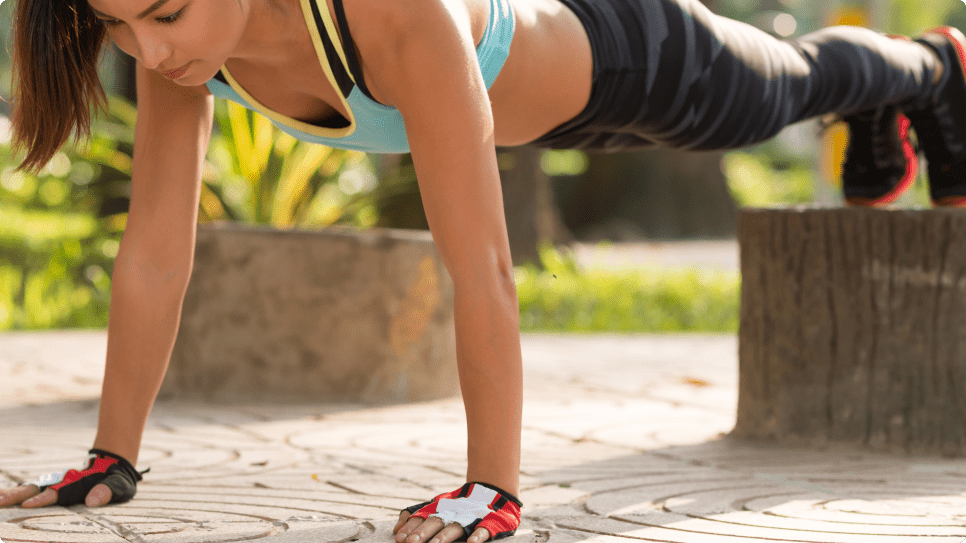
Are You Exercising Properly?
- ديسمبر 24, 2022
- 0 Likes
- 493 Views
- 0 Comments
The benefits of regular exercise are undisputed. However, not everyone knows how to practice effectively and for good health to avoid the ‘benefit of harm’. If you’re feeling like you’re working out regularly, but you’re not getting better or seeing any changes, let’s find out if you’re making mistakes before, during, and after your workout. sex no.
Before practice

1. Eating too much or not eating at all
Health experts don’t recommend going on an empty stomach before exercising, but that doesn’t mean you should overeat either. Eating too much means your body will have to do two things at the same time: digestion and movement, leading to the risk of cramps or stomach pain. On the contrary, according to Mind Body Green, you will easily fall into a state of dizziness, lightheadedness and possibly fainting if you exercise on an empty stomach.
- Advice: Depending on the amount of exercise, you should have a suitable menu. For example, if you plan to jog for an hour, then you should eat 300-500 calories before that depending on your weight.
- Here is the morning menu Prudential suggests for you: 1 can of milk (200 calories) + 1 banana (100 calories), 2 slices of bread (200 calories) + 1 glass of orange juice (100 calories). You should eat this menu 1 hour before the training session.
2. Does not start
The risk of injury is higher if you don’t warm up before exercising. Sudden movement during exercise without warm-up will cause oxygen and blood not to be delivered promptly to the muscles participating in the movement. Because muscle groups are not operated properly, you will be prone to injuries (cramps, sprains, …) when exercising…
- Tips: Take 10-15 minutes to warm up muscle groups, warm up the body. Warm-up movements to warm up the body can be stretching movements (neck, shoulders, arms, legs …) or light exercises such as arm rotation, upper body rotation, light jogging in place, plank (static push-ups) or squat (keep squatting position), …
While practicing
1. Choosing the wrong exercises
Exercise that is not suitable for your health condition can bring more consequences than you think.
For example, do you think running is a simple, easy and effective exercise? That is absolutely right! However, for middle-aged or elderly people, running is not necessarily the right exercise. When running, the entire body weight is put on the knees. For the elderly, these two joints have aged and are no longer as flexible as in youth, so running is easy to lead to injury. Instead of jogging, cycling will be suitable for middle-aged and elderly people, because the body weight is no longer on the knees but is evenly distributed on the thigh muscles and the pelvic area.
- Tips: Choose exercises suitable for the body at each age. For the elderly, the body can no longer respond to vigorous exercise, so cycling or yoga is the most appropriate. With young people, you can freely try many different sports. You should choose the subjects you like to do the most so that you can pursue and practice regularly.
2. Rest too long between exercises
When practicing, you should really focus on the movements and exercises and temporarily forget about the side things like chatting, surfing Facebook or reading the news. Resting too long between exercises to work on your own will make the performance of burning calories during exercise significantly reduced. Besides, after each rest for too long, the muscle groups will lose their movement and have to restart, so it takes a lot of time to burn the necessary calories.
- Tips: Dylan Rivier, a famous Australian fitness trainer, said that depending on the purpose of the practitioner, the rest time can range from 60 seconds to 5 minutes. During rest, avoid sitting still because it will increase pressure on the blood vessels. Instead, you should do light exercise, walk or drink small sips of water. This way muscles and joints do not “cold”.
After training

1. Not taking time to stretch
A lot of people don’t take the time to stretch after a workout. In fact, stretching at the end of the exercise is important to help loosen and regulate the action of joints and muscles to avoid injury. In addition, stretching also helps to regulate the cardiovascular system to return to a stable state and prevent the risk of shock or even stroke after exercise.
- Tips: Spend 5-10 minutes doing gentle exercise and stretching the muscles of your arms, legs, etc. to return your heart rate to normal. If your exercise is jogging, walk for a while to slow down your heart rate before finishing your workout.
2. Eating too much
Proper nutrition after exercise is important and necessary to maintain a healthy body. Just because you exercise heavy exercises does not mean that you have to eat a lot to make up for the lost energy. If you’re trying to lose weight, just one quick post-workout drink can destroy all the hard work you’ve put in in the gym.
- Tip: Keep yourself a healthy diet – lots of vegetables, protein from meat and legumes, and less sugar, carbs and fats from animal fats. Also, consider the calories you eat and the calories you burn during your workout in your overall calorie plan for the day. From there, you can adjust your diet to suit your training goals.
Daily exercise seems simple, but it needs to be done properly so that your efforts are not wasted. We hope that the tips above will help you soon be able to reach your fitness and health goals from your sports practice.
.


Leave Your Comment